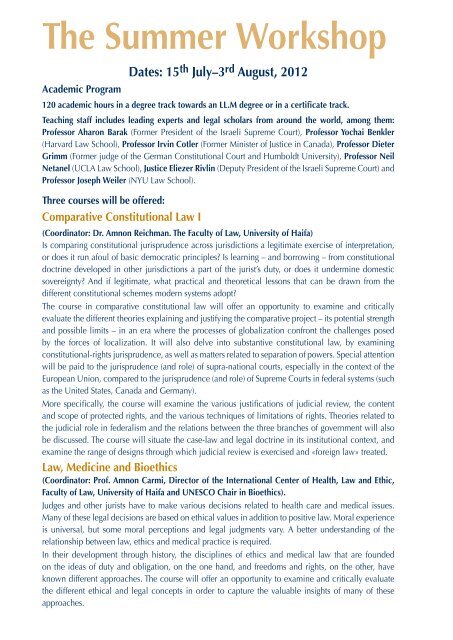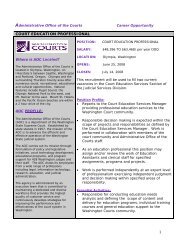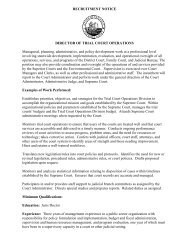Create successful ePaper yourself
Turn your PDF publications into a flip-book with our unique Google optimized e-Paper software.
The Summer Workshop<br />
Academic Program<br />
Dates: 15 th July–3 rd August, 2012<br />
120 academic hours in a degree track towards an LL.M degree or in a certificate track.<br />
Teaching staff includes leading experts and legal scholars from around the world, among them:<br />
Professor Aharon Barak (Former President of the Israeli Supreme Court), Professor Yochai Benkler<br />
(Harvard Law School), Professor Irvin Cotler (Former Minister of Justice in Canada), Professor Dieter<br />
Grimm (Former judge of the German Constitutional Court and Humboldt University), Professor Neil<br />
Netanel (UCLA Law School), Justice Eliezer Rivlin (Deputy President of the Israeli Supreme Court) and<br />
Professor Joseph Weiler (NYU Law School).<br />
Three courses will be offered:<br />
Comparative Constitutional Law I<br />
(Coordinator: Dr. Amnon Reichman. The Faculty of Law, University of Haifa)<br />
Is comparing constitutional jurisprudence across jurisdictions a legitimate exercise of interpretation,<br />
or does it run afoul of basic democratic principles? Is learning – and borrowing – from constitutional<br />
doctrine developed in other jurisdictions a part of the jurist’s duty, or does it undermine domestic<br />
sovereignty? And if legitimate, what practical and theoretical lessons that can be drawn from the<br />
different constitutional schemes modern systems adopt?<br />
The course in comparative constitutional law will offer an opportunity to examine and critically<br />
evaluate the different theories explaining and justifying the comparative project – its potential strength<br />
and possible limits – in an era where the processes of globalization confront the challenges posed<br />
by the forces of localization. It will also delve into substantive constitutional law, by examining<br />
constitutional-rights jurisprudence, as well as matters related to separation of powers. Special attention<br />
will be paid to the jurisprudence (and role) of supra-national courts, especially in the context of the<br />
European Union, compared to the jurisprudence (and role) of Supreme Courts in federal systems (such<br />
as the United States, Canada and Germany).<br />
More specifically, the course will examine the various justifications of judicial review, the content<br />
and scope of protected rights, and the various techniques of limitations of rights. Theories related to<br />
the judicial role in federalism and the relations between the three branches of government will also<br />
be discussed. The course will situate the case-law and legal doctrine in its institutional context, and<br />
examine the range of designs through which judicial review is exercised and «foreign law» treated.<br />
Law, Medicine and Bioethics<br />
(Coordinator: Prof. Amnon Carmi, Director of the International Center of Health, Law and Ethic,<br />
Faculty of Law, University of Haifa and UNESCO Chair in Bioethics).<br />
Judges and other jurists have to make various decisions related to health care and medical issues.<br />
Many of these legal decisions are based on ethical values in addition to positive law. Moral experience<br />
is universal, but some moral perceptions and legal judgments vary. A better understanding of the<br />
relationship between law, ethics and medical practice is required.<br />
In their development through history, the disciplines of ethics and medical law that are founded<br />
on the ideas of duty and obligation, on the one hand, and freedoms and rights, on the other, have<br />
known different approaches. The course will offer an opportunity to examine and critically evaluate<br />
the different ethical and legal concepts in order to capture the valuable insights of many of these<br />
approaches.





